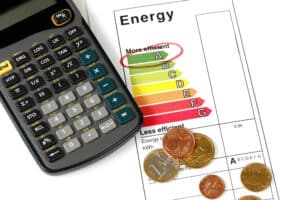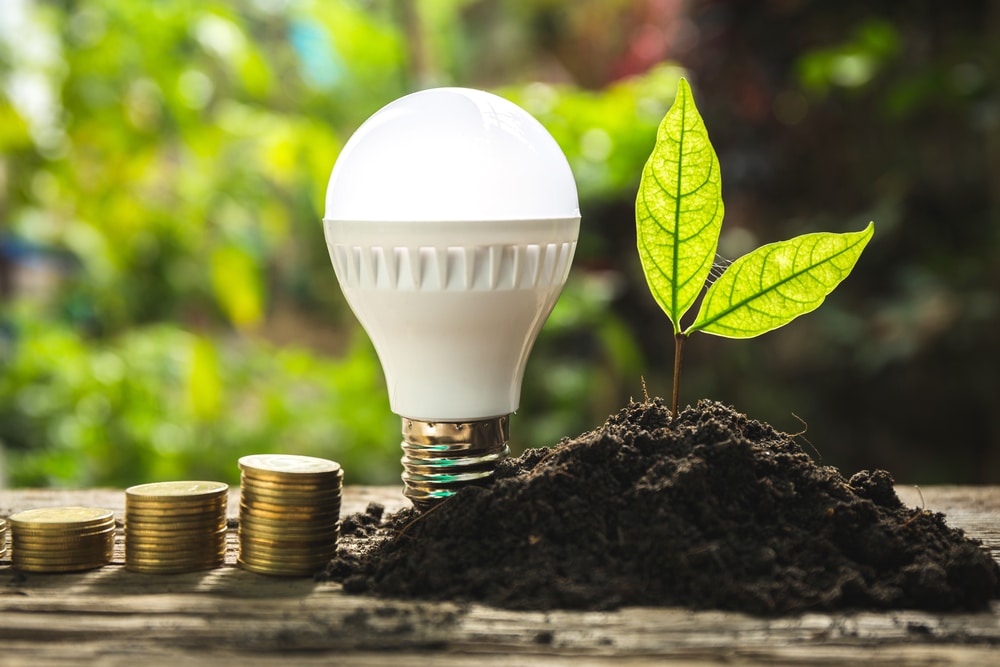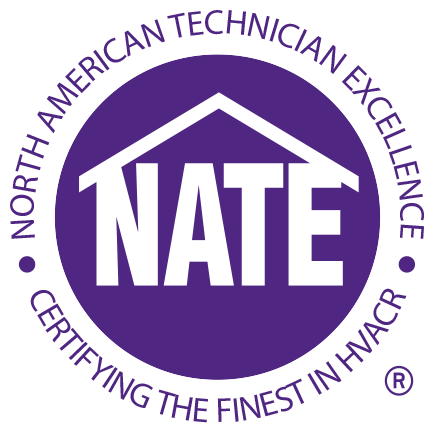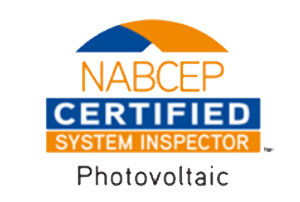What is energy efficiency, and why do I care?

Comparing an old 12 SEER (Seasonal Energy Efficiency Ratio) 3-ton air-conditioner to a new high-efficient 17 SEER unit yields a 29% reduction in electricity use. Both air-conditioners produce the same amount of cooling, in this example, 36,000 BTUs (British Thermal Units), but the new high-efficient system consumes substantially less energy to accomplish the same job.
Conducting the same analysis for heating follows the same logic and yields a similar result. An old 70% efficient 100,000 BTU gravity gas furnace compared to a 98% efficient gas unit harvests a 28% reduction gas usage. Both furnaces produce 100,000 BTUs of heat but the new unit will emit less pollution and can potentially be reduced in size lower the new installed price.
Efficient heating and cooling systems have the dual benefit of lowering monthly operating costs without sacrificing comfort. Additionally, each unit of electricity or gas saved is less carbon emitting pollution released into the atmosphere. In a real sense, choosing high-efficient air-conditioners, heat pumps, and gas furnaces is an individual choice at the local level that positively impacts climate change.
To learn more about high-performance cooling systems,
please contact our Senior Solutions Advisor at
816-635-2493 or advisor@ushpg.com.
According to the EPA, nearly one-third of all electricity generated in the United States is used in residential homes. The U.S. Department of Energy estimates that nearly 70% of that energy is used to heat and cool homes, and supply hot water for cooking, cleaning and bathing.
In response, during the mid-2000s, Minnesota Power created a “pyramid of conservation” model for residential homeowners to assist them in reducing electric and gas usage.
The pyramid of conservation is really a misnomer in that the pyramid actually stacks three separate ideas, concepts and actions, specifically, energy conservation (to need and use less), energy efficiency (to maximize the use of what we do need), and independent energy production (to make our own). The pyramid allows homeowners to make better informed decisions and prioritize investment into the highest return, fastest pay-back measures. The pyramid effectively creates a path to reduced energy homes, and taken all the way, net-zero.
The most cost-effective approach is to maximize investment at the lowest level on the pyramid. As you work up the pyramid the investment will require increasing investments of time, design and money. Synergy is achieved by reducing energy loads through lower cost conservation and efficiency actions thereby minimizing the amount of energy that must be produced which consequently is the most expensive measure to undertake.
The base of the pyramid represents energy conservation, and is focused on knowledge through design and testing, specifically how much energy does the home use, where does the home use or loss the energy, and actions to reduce loads through building improvements, weatherization, behavioral and lifestyle changes. Energy conservation measures are the lowest cost and simplest to implement. As you move up the pyramid, the middle portrays energy efficiency actions, such as LED lighting, energy star appliances, high-efficient heating and cooling, and water heating systems to maximize the use and utility of the electricity and gas that is consumed. These energy efficiency measures are more costly both in dollars and time. At the apex of the pyramid is independent energy production, such as installing a private power plant in the form of wind turbines, or photo-voltaic (PV) solar panel systems. This is the most expensive measures that can be undertaken and should only be considered after first implementing both energy conservation, and energy efficiency measures.
Ground-Source Heat Pump
Comfort. Ground-source heat pumps (GSHP) deliver even temperatures throughout the year with no extreme hot or cold spots. This makes geothermal systems particularly well suited for radiant heating and cooling applications. Additionally, ground-source heat pumps are very quiet, generally equivalent to the sound level of a refrigerator.
Renewable Thermal Energy. Ground-source heat pumps are simply a form of solar technology. The earth absorbs 46% of the suns thermal energy creating a stable near constant ground temperature year-round. A GSHP transfers heat to and from the earth depending on the season which is drastically less energy intensive than creating heat.
Environmental Emissions & Climate Impact. Ground-source heat pumps produce 97% less acid rain causing sulfur, and 99% less carbon dioxide than gas burning appliances. Installation of one ground-source heat pump displaces 14 tons of carbon dioxide emissions equivalent to planting 1 acre of trees or removing two gasoline cars off the road.
Economical. GSHPs operate at the highest efficiencies of any form of space heating and cooling. As compared to conventional heating and cooling systems such as a gas furnace and air-conditioner, ground-source heat pumps operate at efficiencies above 400% and can save up to 75% more energy and utilities.
Local Rebates and Support. Platte Clay Electric Cooperative offers $750 per ton rebate for new ground-source heat pump installations. Kansas City regulation 88-305-11 permits the installation of GSHP earth heat exchanger systems in all zoning districts. Kansas Statute 79-201 S.B. 91 allows homeowners to file application for property tax exemption for installation of new ground-source heat pumps. The exemption is limited to the 10 taxable years immediately following GSHP construction.
INDUSTRY UPDATE – Expiring Federal Incentives
In 2020, the federal tax credit (not deduction) for the installation of a new ground-source heat pump was extended through 31 December 2023. Without further legislative action, this incentive will decrease each year eventually sunsetting. The current incentive provides a 26% tax credit of the entire installation cost for a residential ground-source heat pump. 1 January 2023, the tax credit steps down to 22% expiring the end of 2023. In 2016, this incentive did expire and in 2018 required new legislation to renew the incentive, although at a lower percentage.
- Can be combined with other available energy efficiency upgrade credits
- Can be combined with photovoltaic solar tax credits
- No limit to this tax credit
- Can be used to offset alternative minimum tax (AMT)
- Can be used in more than one year
Home Performance Group is a licensed, insured, bonded, and certified full-service heating, cooling, electrical and plumbing company offering design, sales, service, repair, and maintenance. Our focus is providing total value to clients through first-class service experiences, ongoing education, industry-leading equipment, peace of mind knowing work is completed correctly and safely, and engaged communications.


Featured Service Areas:
| Missouri | Kansas | ||||
|---|---|---|---|---|---|
|
Belton Blue Springs Cameron Excelsior Springs Gladstone Holt |
Independence Kansas City Kearney Lathrop Lawson Lee's Summit |
Liberty North Kansas City Parkville Platte City Plattsburg Polo |
Raytown Riverside Smithville Sugar Creek Weston |
Kansas City Lansing Leavenworth Leawood Lenexa |
Merriam Mission Mission Hills Praire Village Shawnee |

























